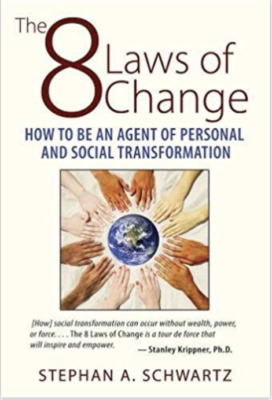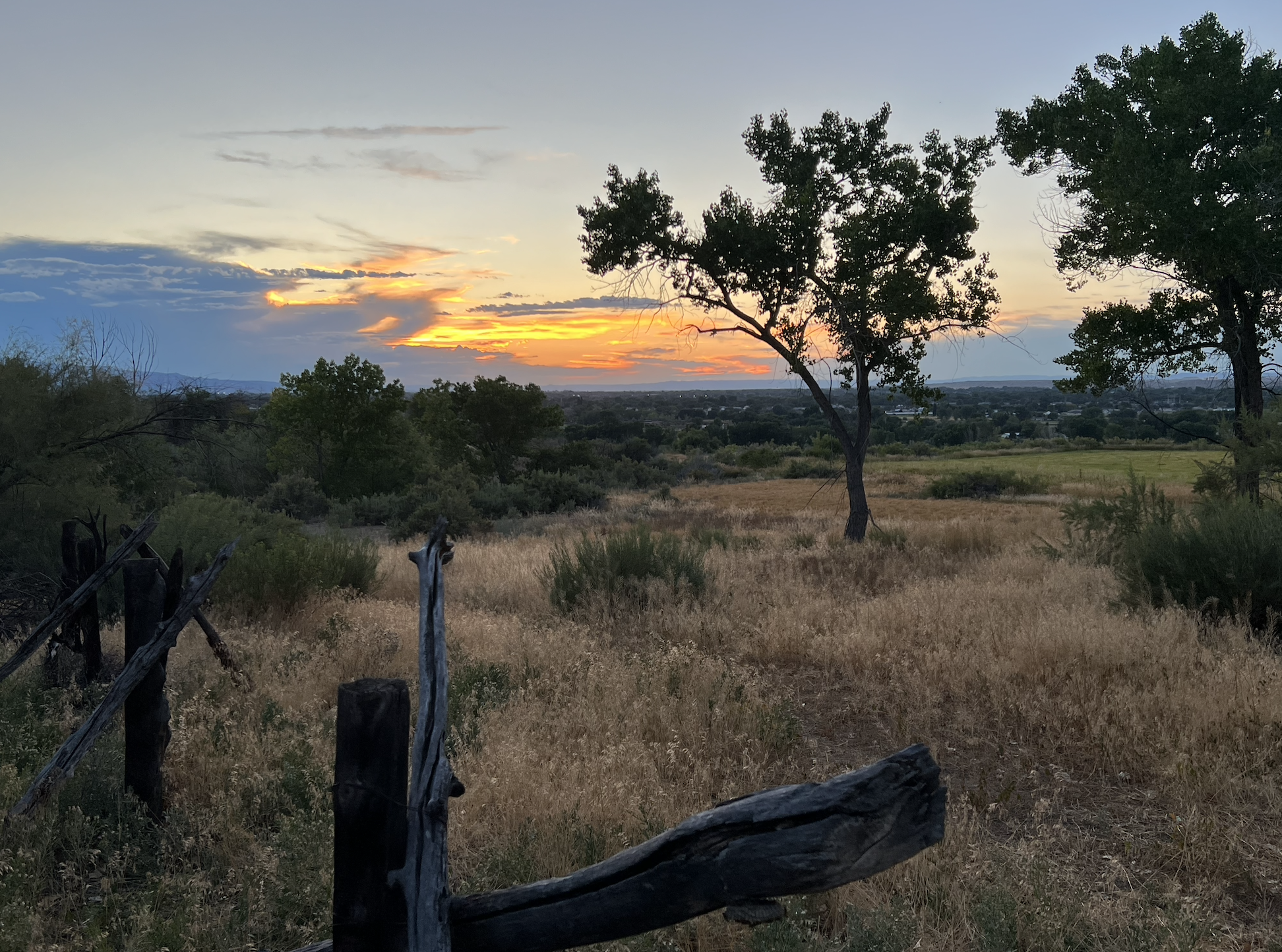
I’m glad to recently run across these “Eight Laws.” They are from Stephan Schwartz’s book, “The Eight Laws of Change: Be an Agent of Personal and Social Transformation.” These come from Stephan’s observing Quakers in practice, who so uniquely ground their action in contemplation to support rather profound impact in so many social issues of our times. I love it that these “laws” emphasize “beingness.” I’ve added a pithy statement to each law — as a facilitator and teacher, I can see these laws so readily helpful in grounding my work with groups and systems.
Enjoy.
First Law. The individuals, individually, and the group, collectively, must share a common intention. — Purpose and intention are the invisible leader. It isn’t just words. Intention, shared, creates an energetic base for cohering what people do.
Second Law. The individuals and the group may have goals, but they may not have cherished outcomes. — It is such a discipline to surrender pre-conceived, sometime even well-conceived, notions of outcome. It takes discipline to stand for the longevity, and often slower and more convoluted path, that is going further, sustainably, and not just faster.
Third Law. The individuals in the group must accept that their goals may not be reached in their lifetimes and be okay with this. — Yup, sometimes, one of the scales that we work at is like that of building the old cathedrals. We all must come to terms with the simultaneous existence of what is the clear and immediate, and what is the longer mysterious arc beyond our threshold of lifetime.
Fourth Law. The individuals in the group must accept that they may not get either credit or acknowledgment for what they have done and be authentically okay with this. — Yup again, it’s quite a thing to work from such deep and compelling conviction defined by “can’t not” do this, whether there is credit or not.
Fifth Law. Each person in the group, regardless of gender, religion, race, or culture, must enjoy fundamental equality, even as the various roles in the hierarchy of the effort are respected. — I think we are all learning to amplify grace over reaction and offense. We are all learning to be in containers that stand for a fundamental equality, as imperfect as those containers may be. It’s the right direction thought the specifics of the path, or reparation, may be quite unknown.
Sixth Law. The individuals in the group must foreswear violence in word, act, or thought. — There are just some lines to not cross. There are times when demonstration with fierceness is required, but not violence. In my work with circle, we often talk about how people give themselves to the whole, but also must tend to their own “hoops.” It’s one thing to be angry and know a bit about what that is working within us. It’s another thing to spill our anger into actions of violence — in both deed or emotion.
Seventh Law. The individuals in the group and the group itself must make their private selves consistent with their public postures. — Integrity, integrity, integrity. That’s supported by a practice of vulnerability. I keep learning about how much of this is “learning in public” as the gifted, yet very imperfect, beings that we are.
Eighth Law. The individuals in the group and the group collectively must always act from the beingness of life-affirming integrity. — One of my most prominent teachers in my life has consistently invited a relationship with life-affirming qualities. She has given me courage to confront “doingness” with the power and potency of “beingness.” She has encouraged over three decades now, departure from the imposed machine imagery and return to an inherent and ineffable view of aliveness.
Cool, right. A little guide on this path of learning and connection with other humans.

